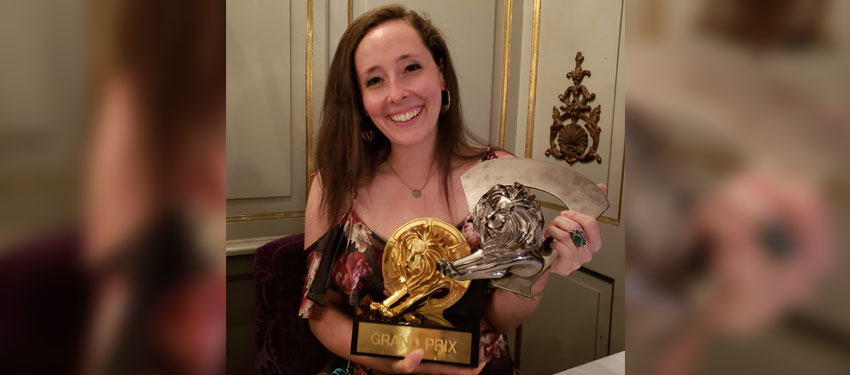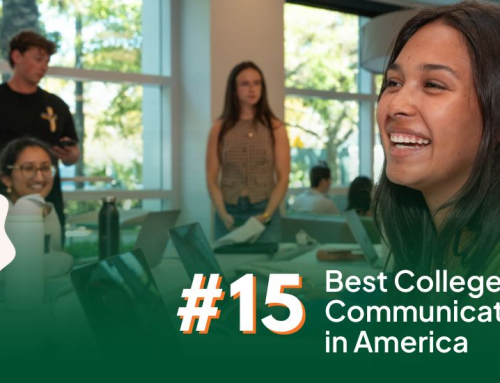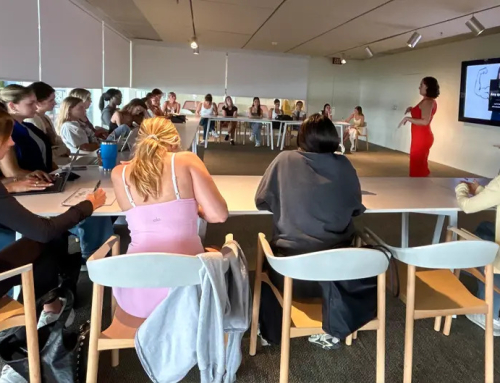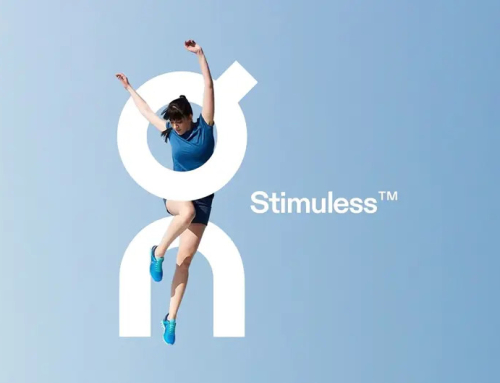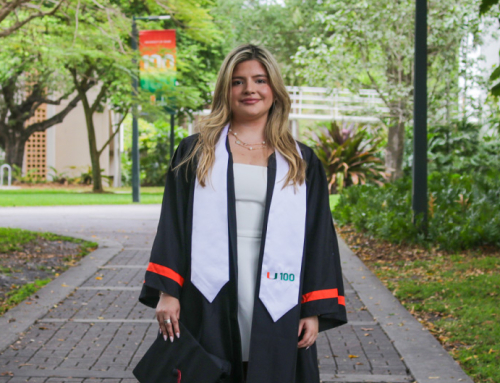It was 2012 Ultra weekend in Miami. Throngs of EDM lovers donning glitter tube tops and face paint crowded Museum park, including UM SoC alumnus and senior at the time Erin Evon. That year Evon was competing in NSAC — a national advertising competition — and when the adviser of the team, Meryl Blau, called her for some last-minute help, Evon, rainbow outfit and all, deserted the music festival and rushed to her team’s aid.
Evon graduated from the SoC’s creative advertising program in 2012, and this year, she won seven Lions at the Cannes Lions International Festival of Creativity for her work on the hysterical and well-known Tide ads that debuted during the 2018 Super Bowl. Evon’s team also won a Lion for a project they did in conjunction with the National Down Syndrome Society. The 7-day festival, held in Cannes, France, is considered the most prominent convention in the advertising industry.
“There’s no award that is any more prestigious than the [Cannes Lion] — you win a lion, you’ve taken the gold in the Olympics,” said MerylBlau, assistant professor of professional practice in the Department of Strategic Communication.
With the same dedication she exhibited after leaving Ultra to help her NSAC team in the middle of the night, Evon has made huge strides in the advertising industry.
She began her career at Saatchi & Saatchi, one of the top global ad agencies, where she worked her way up from a creative assistant to art director over five years. There she poured her energy into the Tide account, creating the commercial which hilariously insists that every other commercial with clean clothes in it is, obviously, a Tide ad too.
“A group of us went in and kind of did a brainstorm all day Saturday, and by the end of the brainstorm, the idea of ‘Tide ad’ had come to life. And then Sunday we came in and basically executed all day, presented the next day to clients, and they loved it,” Evon said.
Evon describes the process of birthing the Tide ad as “strenuous,” but “totally worth it in the end,” when she and her team stood on stage to accept their awards. The ad received a Grand Prix, the highest award at the festival, as well as various other distinctions.
“I think it kind of happens so fast that you don’t really take it in,” Evon said. “Someone suggested to just take a moment and look up — because it’s a big auditorium and everyone’s clapping — and to just take it all in and remember the moment. So I made sure to do that.”
Evon currently works for R/GA, a digital ad agency in New York City, as their senior art director, a role she has embodied since her time at UM.
“She was an art director by trade, and she was already a really talented designer,” Blau said. “But what I started to recognize about [Erin] was that every time I would challenge her or say that something wasn’t as strong as it could be, she would literally go home, tear down the whole site and build it again.”
During her time at UM, Evon developed the artistic skills required to make it in the competitive world of advertising, but it wasn’t just what she learned in the classroom that brought her success. What Evon’s professors say was most striking about her, in fact, was this “workhorse” vigor shielded by a very much unassuming exterior.
“To be honest she wasn’t one of the more vocal students, but those are the ones that I always watch out for being the best. I always saw Erin as this sort of genius behind the scenes,” said Alyse Lancaster, department chair for the Department of Strategic Communication.
And Evon’s humility has only continued to benefit her in the advertising industry. The art director made sure to emphasize that it “takes a village to make a Tide ad,” praising her fellow colleagues on the account, strategy and media buying teams.
“It’s been seven years of a career — she’s in her 20s. I mean that’s just hard work and fire in your belly, and she has it, she just has it,” said Blau.
Lancaster and Blau began the creative advertising track with the hopes that students graduating from the program would not need to attend portfolio or ad school and be just as competitive when they entered the workforce.
It seems Evon is living proof of the program’s prowess which, according to Blau, has only grown since Evon graduated.
“I think at UM, particularly, the program taught you that if you work really hard something will come out of it,” Evon said.

